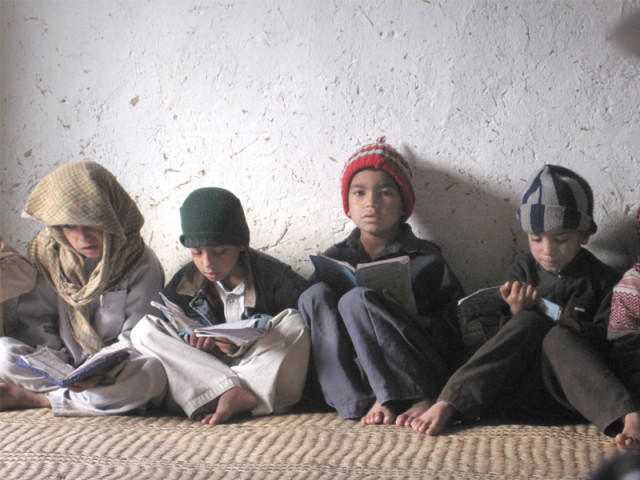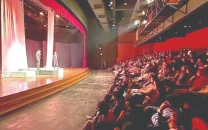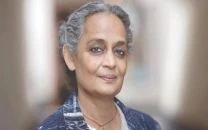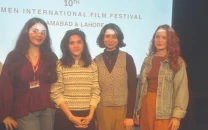Running Water: Spare the rod
Ali Ahmed Brohi’s short film Running Water depicts the horrors of corporal punishment.

A mother smacks her daughter for answering back; a father beats his son because he has hit another child; a teacher hits the student with a ruler because he hasn’t done his homework — these incidents are not unfamiliar as stories of child corporal punishment float around all the time. Now, in a bold attempt to bring the horrors of child corporal punishment to the celluloid, film-maker Ali Ahmed Brohi has taken on the issue in his short film Running Water. Set in Balochistan’s Khuzdar area, the film, which is in the final stages of pre-production, also depicts the rich culture of this long neglected region.
In an interview with The Express Tribune, Brohi talks about his 15-minute film, his inspiration behind taking up the issue and the problems he faced while shooting the film.
Please describe the synopsis of Running Water? What’s the story behind the title?
Running Water highlights the issue of corporal punishment. Additionally, it also explores how we interpret religion and force it upon each other. It’s the story of a boy and the battles he fights for his dreams.
The name of the film is more of a visual reference; there is a specific scene in the film showing flowing water. This scene comes at the peak of the emotional dilemma that the boy faces. That’s how we decided upon the name.
Corporal punishment is present everywhere. Why did you choose Balochistan in particular?
Well, I have my roots in Balochistan so I was naturally inclined to portray the situation there. And apart from highlighting a social issue; the film portrays the beautiful culture of Balochistan. There are places and things in Balochistan that people haven’t heard about and film is a good medium of showing it to the world.
What are the difficulties you had to face while working on a film in Balochistan?
Making a film in Pakistan is not easy. The lack of funding and infrastructure makes it harder for film-makers and when we go to Balochistan, the percentage of the difficulties increases significantly. The political problems over there make it very hard for a film-maker to work. People in Balochistan are scared and are reluctant to be involved in anything remotely close to film-making. But this is not to say that they aren’t talented; there are so many artists and creative people waiting for a chance to show their talent.
What’s the message that you’re trying to deliver to the world about Balochistan?
I was never really interested in Iran and its culture until I watched their films. I think film is the most powerful form of art and if we start portraying Balochistan in our films, it’ll be a big step on our part. I want to show to the world that Balochistan has its own culture, language and rich tradition and it shouldn’t just be thought of as merely a land covered with mountains.
Do you plan to take your film to an international film festival?
I am planning to take Running Water to different film festival including Cannes. Other than that, there will be local screenings also, and hopefully a screening at FiLums, Pakistan’s largest film festival, which takes place at LUMS in February every year.
Published in The Express Tribune, March 12th, 2012.



















COMMENTS
Comments are moderated and generally will be posted if they are on-topic and not abusive.
For more information, please see our Comments FAQ